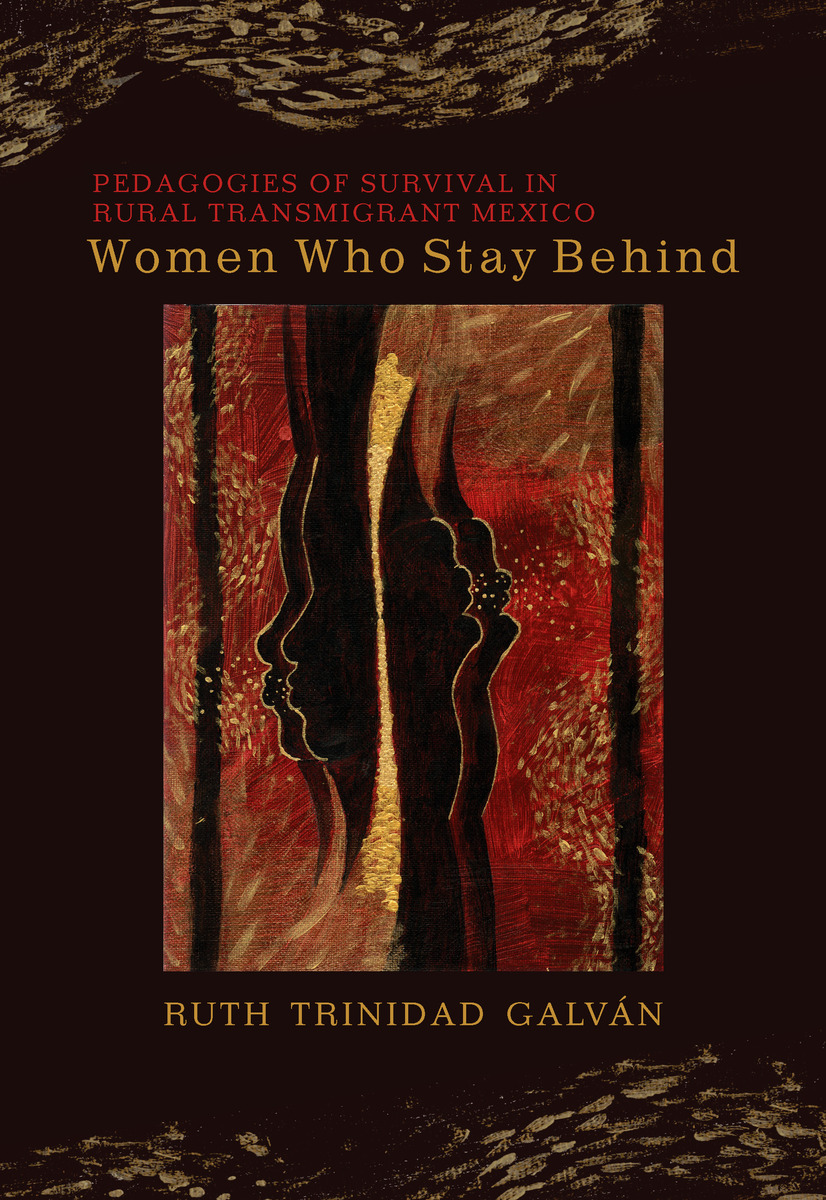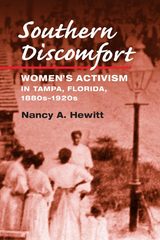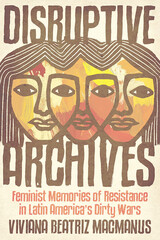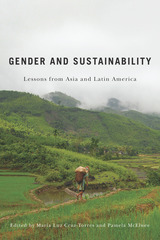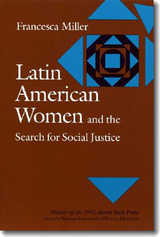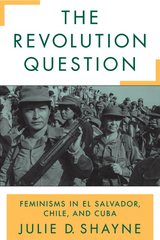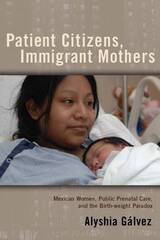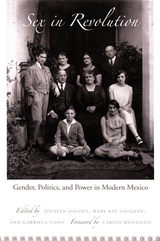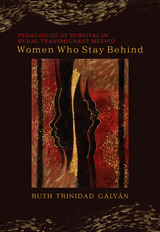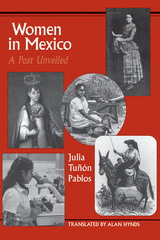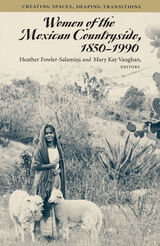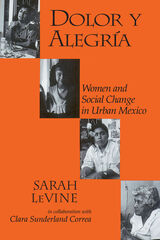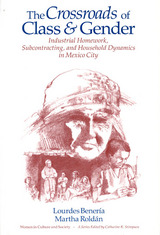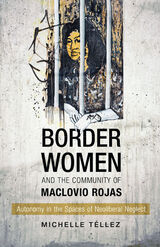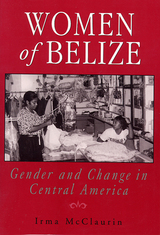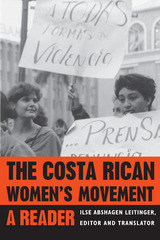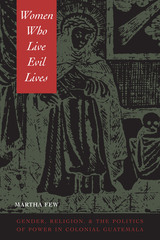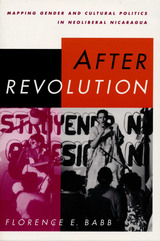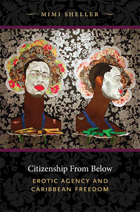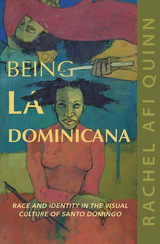Women Who Stay Behind: Pedagogies of Survival in Rural Transmigrant Mexico
University of Arizona Press, 2015
eISBN: 978-0-8165-0198-4 | Cloth: 978-0-8165-3145-5
Library of Congress Classification HQ1462.T75 2015
Dewey Decimal Classification 305.40972
eISBN: 978-0-8165-0198-4 | Cloth: 978-0-8165-3145-5
Library of Congress Classification HQ1462.T75 2015
Dewey Decimal Classification 305.40972
ABOUT THIS BOOK | AUTHOR BIOGRAPHY | REVIEWS | TOC
ABOUT THIS BOOK
Women Who Stay Behind examines the social, educational, and cultural resources rural Mexican women employ to creatively survive the conditions created by the migration of loved ones. Using narrative, research, and theory, Ruth Trinidad Galván presents a hopeful picture of what is traditionally viewed as the abject circumstances of poor and working-class people in Mexico who are forced to migrate to survive.
The book studies women’s and families’ use of cultural knowledge, community activism, and teaching and learning spaces. Throughout, Trinidad Galván provides answers to these questions: How does the migration of loved ones alter community, familial, and gender dynamics? And what social relations (convivencia), cultural knowledge, and women-centered pedagogies sustain women’s survival (supervivencia)?
Researchers, educators, and students interested in migration studies, gender studies, education, Latin American studies, and Mexican American studies will benefit from the ethnographic approach and theoretical insight of this groundbreaking work.
The book studies women’s and families’ use of cultural knowledge, community activism, and teaching and learning spaces. Throughout, Trinidad Galván provides answers to these questions: How does the migration of loved ones alter community, familial, and gender dynamics? And what social relations (convivencia), cultural knowledge, and women-centered pedagogies sustain women’s survival (supervivencia)?
Researchers, educators, and students interested in migration studies, gender studies, education, Latin American studies, and Mexican American studies will benefit from the ethnographic approach and theoretical insight of this groundbreaking work.
See other books on: Family relationships | Foreign workers | Mexicans | Rural women | Survival
See other titles from University of Arizona Press
